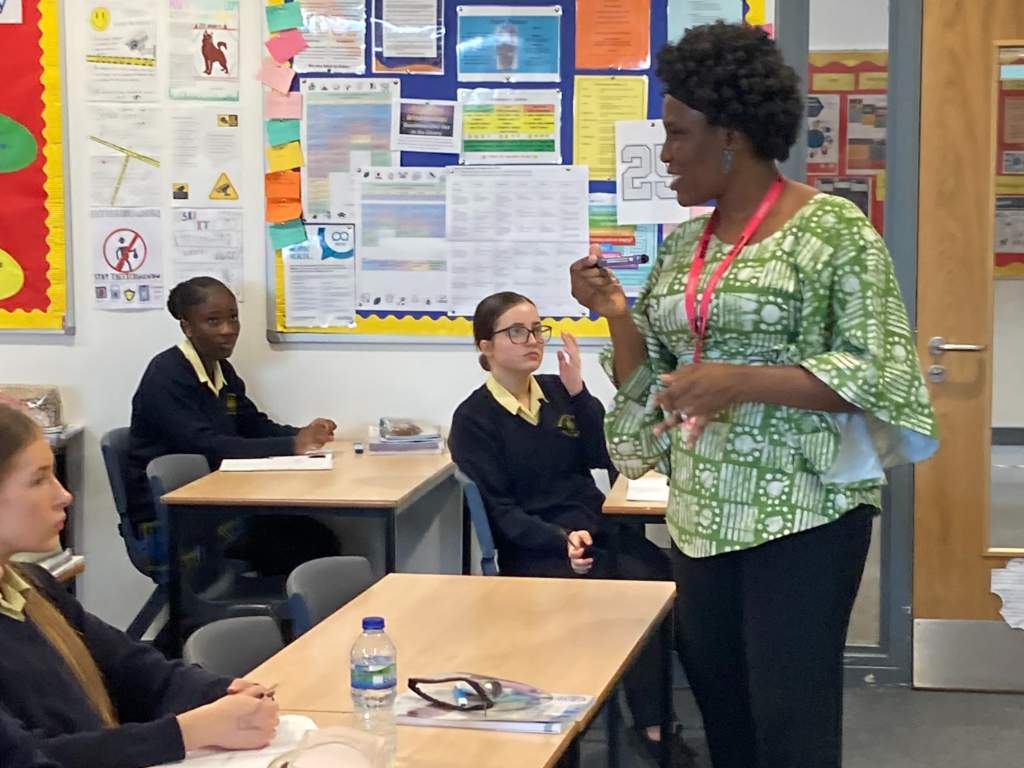Year 10 Geographers Welcome Nigerian Teacher for Insight into Life in Lagos
Learning about the opportunities and challenges of living in a city with a Newly Emerging Economy (NEE)
On Wednesday 12th March, Year 10 geographers at Bishop’s Hatfield Girls’ School were fortunate to host a special guest: Anita, a teacher from Lagos, Nigeria, who shared her knowledge and experiences of life in one of Africa’s most vibrant and challenging cities. The session began with Anita giving an overview of Lagos, a bustling metropolis that is home to over 20 million people. As the economic powerhouse of Nigeria, Lagos presents both abundant opportunities and significant challenges.
Opportunities in Lagos: One of the highlights of the talk was learning about the numerous job opportunities available in Lagos. Anita explained that the city is a global hub for fashion and entertainment. Lagos is home to a rapidly growing fashion industry, with designers and entrepreneurs launching their own brands and exporting Nigerian culture worldwide. The students also heard how Lagos also plays a central role in the entertainment sector, particularly in the Nigerian film industry, known as Nollywood, which is one of the largest film industries in the world.
Challenges in Lagos: However, the students quickly learned that life in Lagos is not without its challenges. The city is infamous for its severe traffic congestion and how you had to be careful to board the correct yellow Danfo bus, otherwise you would end up in the wrong part of the city! Another issue Lagos faces is water pollution. We heard about how the city’s waterways are often contaminated, making it difficult for residents to access clean drinking water. The situation is particularly in Makoko, a sprawling slum built on stilts over the water.
Innovative Solutions: Despite these challenges, Lagos is also home to innovative solutions aimed at improving living conditions. One such example is the Makoko Floating School. This remarkable initiative is a sustainable, floating structure that serves as a school for children in the Makoko community. Designed to withstand the city’s flooding issues, the floating school provides free education to over 100 children who might otherwise have no access to schooling. This is a fantastic example of the importance of sustainable development in urban planning.
Anita’s talk left the students with much to think about, highlighting both the exciting potential and the pressing challenges that come with living in a rapidly growing city like Lagos. It was an invaluable learning experience that helped deepen the students’ understanding of this important GCSE case study.







